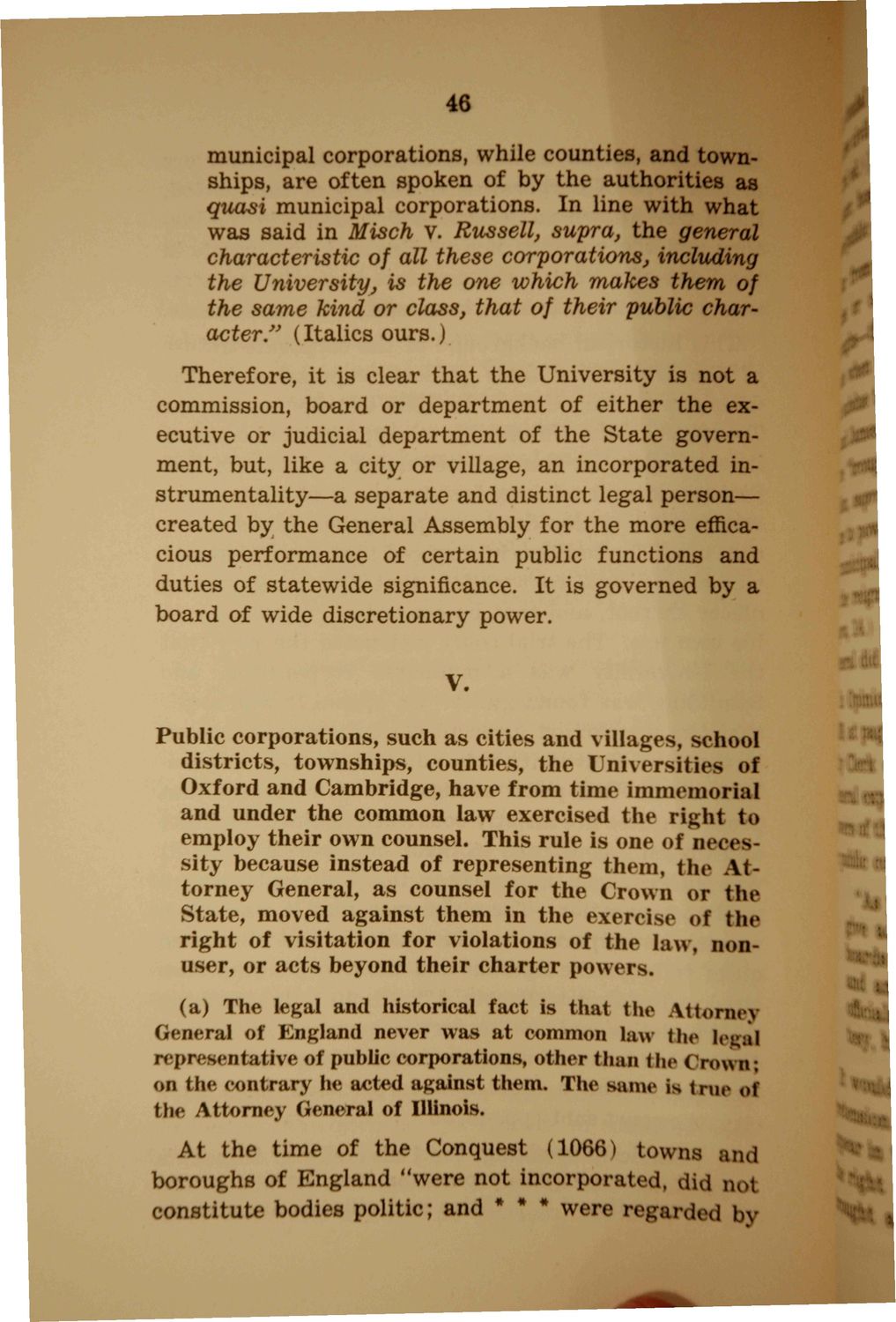| |
| |
Caption: Booklet - UI Charter of Freedom (1942)
This is a reduced-resolution page image for fast online browsing.

EXTRACTED TEXT FROM PAGE:
46 municipal as quasi municipal corporations, In line with what was said in Misch V. Russell, supra, the general characteristic of all these corporations, including the University, is the one which makes them of the same kind or class, that of their public character/' (Italics ours.) Therefore, it is clear t h a t the University is not a commission, board or department of either the executive or judicial department of the State government, but, like a city or village, an incorporated instrumentality—a separate and distinct legal person created by the General Assembly for the more efficacious performance of certain public functions and duties of statewide significance. It is governed by a board of wide discretionary power. V. Public townships, counties, the Universi of d Cambridge, have from time immi : the common law exercised the H employ their own counsel. This rule is one of necessity because instead of representing them, the Attorney General, as counsel for the Crown or tlie State, moved against them in the exercise of the right of visitation for violations of the law. nonuser, or acts beyond their charter powers. (a) The legal and historical fact is that (lie Attorney General of England never was at common law the letral representative of public corporations, other Ihan the Crown; on the contrary he acted against them. The same is true of the Attorney General of Illinois. At the time of the Conquest (1066) towns and boroughs of England "were not incorporated, did D t constitute bodies politic; and were regarded by
| |